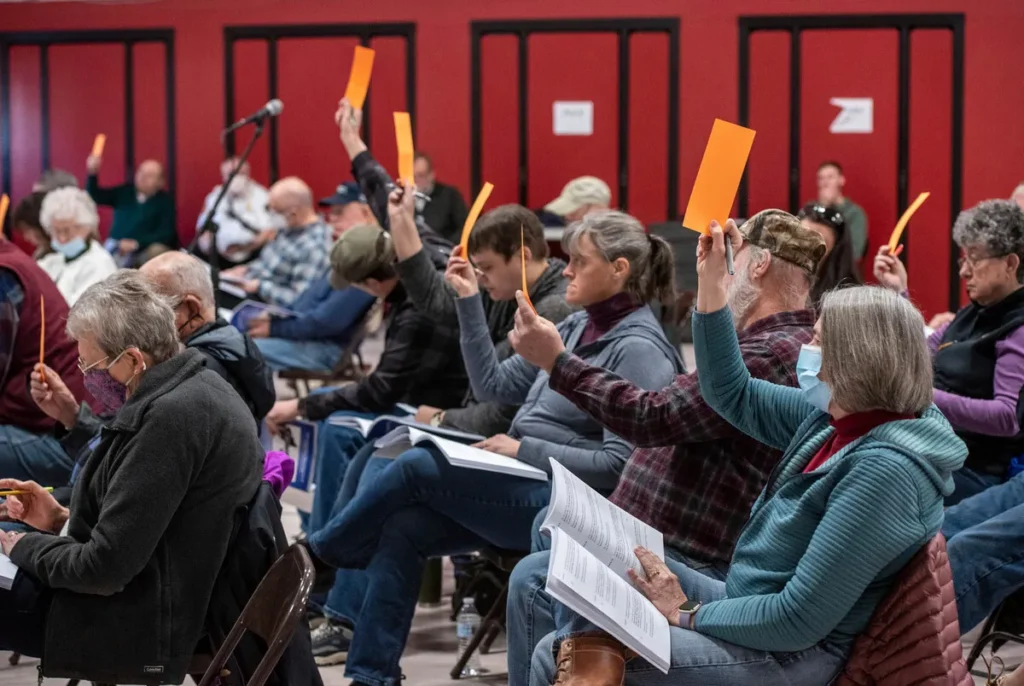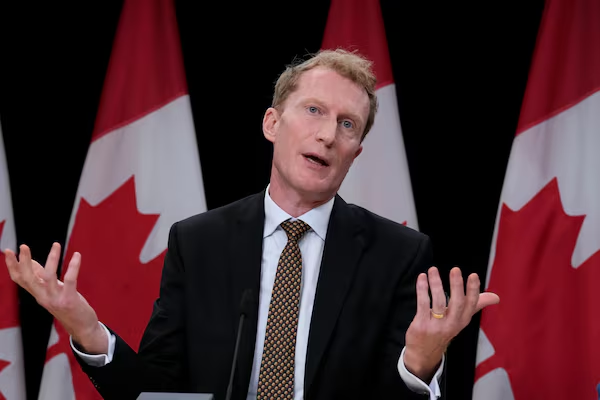“Sound and fury, signifying nothing”.
Shakespeare’s mournful description of human life in Macbeth can be aptly applied to Premier David Eby’s constant expressions of frustration with Ottawa’s pedal-to-the-metal population growth strategy.
Speaking on July 17th beside Newfoundland Premier Andrew Furey, who the B.C. government is supporting in a challenge to the federal government’s equalization program, Premier Eby ramped up his complaints to new heights of rhetorical flourish.
He asserted that British Columbia’s “unprecedented population inflows” – 180,000 new British Columbians last year alone – are “completely overwhelming”.
Eby laid out the devastating consequences of B.C.’s disproportionate immigration intake on our public services and housing market: “To add a new city of 180,000 people every year to our province is not sustainable. Our schools are full. We are unable to keep up with housing starts.”
It is undeniable that B.C. is being “overwhelmed” by the unprecedented population growth driven by the Trudeau government’s open-door immigration policy, which saw Canada’s population grow by nearly 1.3 million in 2023.
According to documents obtained by the Canadian Press, Trudeau’s government disregarded warnings by public servants that increasing immigration levels would worsen housing affordability.
B.C. is now paying the price for Ottawa’s incompetence.
Almost a million British Columbians have no family doctor. A poll from the Angus Reid Institute found that one in three B.C. residents are considering leaving the province because of the cost of housing.
Schools across the province are overcrowded, with skyrocketing enrolment showing no signs of letting up. Surrey, the fastest-growing school district in B.C., is being forced to use nearly 400 portables as its classrooms overflow. The district is staggering start and end times for some students to increase capacity.
Premier Eby’s repeated diagnoses of the negative effects of unsustainable population growth are correct. Now, what’s his treatment plan?

So far, the only solution he has floated is for premiers to be able to work with the federal government to align immigration levels with provincial capacity to integrate newcomers.
This sounds great, but is of course purely theoretical.
What steps will be taken to move Eby’s abstract desire for provincial-federal cooperation on immigration numbers from the warm and fuzzy realm of the abstract into the cold, harsh light of reality?
Nobody in Eby’s government appears to have thought that far.
One path forward would be to play hardball like Quebec, which is threatening to hold a referendum (their favourite pastime) on giving their province full control over immigration.
Premier Eby recently complained (his favourite pastime) about the Trudeau government’s $750 million grant to Quebec to accommodate an influx of asylum seekers, arguing that B.C. deserves a similar grant to deal with our own influx of foreign workers and international students.
This fundamentally misses the point. Quebec gets concessions like this because it exerts constant pressure on Ottawa to get what it wants – if that means threatening a referendum or invoking the notwithstanding clause, they are more than willing to do so.
After the feds gave Quebec the $750 million grant, Premier François Legault was disappointed that it was not the $1 billion he had asked for initially, stating: “We’ll take the money, but we’ll continue to ask for more”.
Quebec is not ashamed to look out for Number One – we shouldn’t be, either.
Rather than being angry about Quebec’s favourable treatment, our premier should learn to emulate their highly effective pressure campaigns on the federal government.
Another way to moderate B.C.’s population growth would be to bypass the feds entirely, and cut the number of nominees accepted under the Provincial Nominee Program, an economic immigration program which allows B.C. to select permanent residents.
Prince Edward Island recently took this route, slashing immigration nominations by 25% and refocusing the remaining nominations away from fast food and retail workers, instead favouring newcomers with skills in healthcare, trades, and childcare.
P.E.I. made this decision to slow the rapid population growth on their increasingly overcrowded island, and reduce the strain on hospitals, schools, and housing.
We could do the same – but this would require a level of courage and political will that the B.C. NDP may not possess.
Merely complaining about B.C.’s runaway population growth isn’t working – British Columbians deserve a government that will take concrete action to reduce growth and give our infrastructure and public services some breathing room.
All content on this website is copyrighted, and cannot be republished or reproduced without permission.
Share this article!




The truth does not fear investigation.
You can help support Dominion Review!
Dominion Review is entirely funded by readers. I am proud to publish hard-hitting columns and in-depth journalism with no paywall, no government grants, and no deference to political correctness and prevailing orthodoxies. If you appreciate this publication and want to help it grow and provide novel and dissenting perspectives to more Canadians, consider subscribing on Patreon for $5/month.
- Riley Donovan, editor